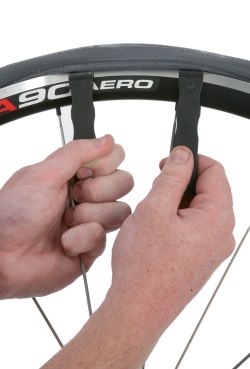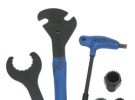Keen to set up a home workshop but don’t know where to begin? Here’s a checklist of the most important bike tools that will get you started.
Clean Cut
Do not attempt to cut gear or brake cables with tin snips or side cutters! Good quality bike specific cable cutters are the only way to go. They will last for many years and other dodgy methods inevitably result in ugly frayed cable ends.

Chain Breakers
New chains are on the long side and generally need shortening by a few links to suit most bikes. Don’t attempt to do this with a hammer and punch—a proper chain breaker is what you need. This is one area where spending a few extra dollars can make a major difference. Cheap chain tools typically have a short lifespan while good ones will last.
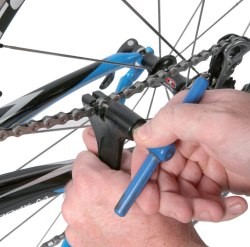
Whips & Chains
Most modern road bikes have easy to remove cassette cog systems… well they are quick and easy to remove if you have the correct tools. Buy yourself a ‘chain whip’ and a ‘cassette tool’ and you will be set. Cassette removal will allow you to swap to different gear ratios for hilly or flat terrain and may also be required if you need to replace a spoke in your rear wheel.
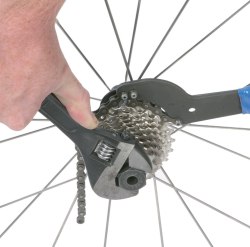
Wheel Truing
In the hands of a skilled user, a spoke key can be used to pull a rim back into shape and fine tune the tension of the spokes. While these tasks can be achieved while the wheel is mounted in the bike frame, a truing stand should also be high on the priority list as they make the job a lot easier. This is another area where skimping is a bad idea as poor quality spoke keys tend to slip and round off nipples.
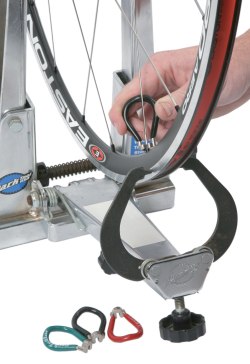
Carbon Care
With the recent explosion of lightweight carbon components, a torque wrench is becoming an essential addition to the home workshop. While carbon handlebars and seat posts may be extremely strong, over tightening can damage the fibres and lead to component failure. Torque wrenches may be expensive (usually in excess of $100) but they are much cheaper than the dental bills that can result from handlebar failure.
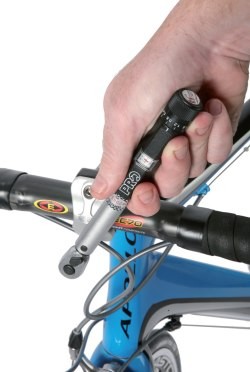
Plastic Fantastic
In most cases, plastic tools sound like a cheap and tacky option. When it comes to tyre levers, plastic or nylon is a good option as it is less likely to damage your rim, tyre or inner tube. Broad and flat levers seem to work best on tight tyres.
